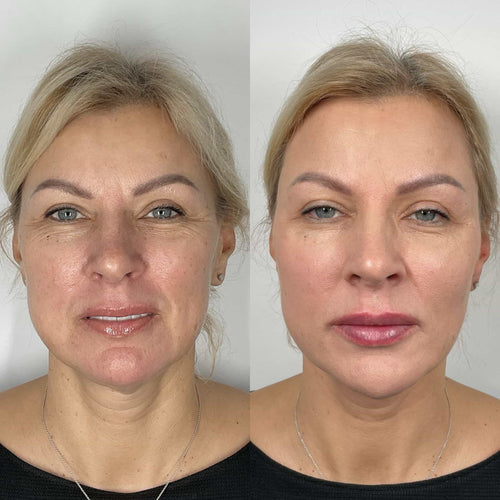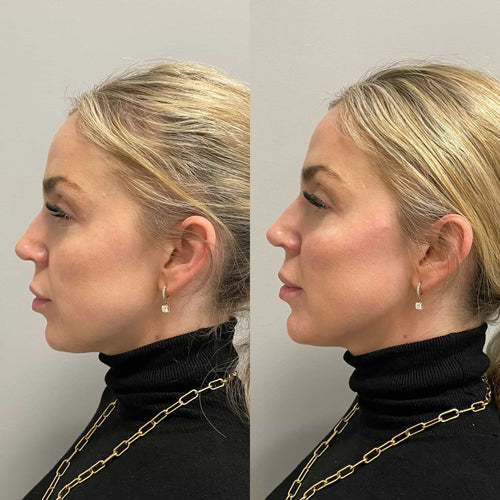Book Your Dermal Filler Appointment with Dr. Laura Geige at It’s Me and You Clinic
Legal Requirements
Minimum Age Varies
Legal requirements for cosmetic procedures like lip fillers vary significantly across jurisdictions and often depend on a combination of factors, including age, state laws, and medical regulations.
In general, many countries and states have minimum age restrictions for cosmetic procedures, with the most common being 18 years old. This is based on the legal age of majority in most places, signifying when an individual is legally considered capable of making their own healthcare decisions.
However, some regions may allow individuals younger than 18 to undergo lip fillers under certain circumstances, such as with parental consent or a court order. These exceptions are often subject to strict guidelines and oversight to ensure the well-being and informed consent of minors.
It’s crucial for anyone considering lip fillers, regardless of age, to thoroughly research the legal requirements in their specific location. Consulting with a qualified medical professional who is knowledgeable about local laws and regulations is essential to ensure compliance and safety.
Remember, each jurisdiction may have its own unique rules and exceptions. Therefore, seeking personalized advice from a healthcare provider is the best way to determine the legal age for lip fillers in your area.
State-Specific Regulations
Determining the legal age for lip filler injections varies significantly depending on location and individual state regulations.
In general, most states in the US **require** individuals to be at least 18 years old to consent to cosmetic procedures, including lip fillers.
However, some states allow minors to receive lip filler injections with parental consent, typically at a minimum age of 16 or 17.
It’s crucial for anyone considering lip filler injections to **research their state’s specific laws and regulations** before making an appointment.
Additionally, individual practitioners may have their own policies regarding the minimum age for patients.
For instance, some practitioners might choose to only treat patients who are 21 years old or older.
It’s always best to **consult with a qualified and licensed medical professional** to determine the legal requirements and suitability of lip fillers in your specific situation.
Keep in mind that even if a state permits lip filler injections for minors, it is essential to prioritize responsible decision-making and understand the potential risks and benefits involved.
Factors Affecting Filler Eligibility
Medical Considerations
Determining eligibility for lip filler isn’t simply based on age. While there are minimum age requirements set by regulatory bodies and medical professionals (typically 18 years old), a comprehensive assessment involves several factors.
**Medical Considerations:**
A thorough medical history review is crucial before considering any filler treatment. Conditions like:
• **Active infections or skin conditions:** Lip fillers are contraindicated during active outbreaks of herpes simplex virus (HSV), bacterial, or viral infections in the area. Skin conditions like eczema or psoriasis may also require careful consideration.
• **Autoimmune diseases:** Individuals with autoimmune disorders might be at increased risk of complications, so consultation with a rheumatologist is often necessary.
• **Blood clotting disorders:** A history of bleeding disorders or taking blood thinners can significantly impact filler safety.
• **Pregnancy and breastfeeding:** Filler treatments are generally not recommended during pregnancy or while breastfeeding due to potential unknown effects on the fetus or infant.
**Medical Examination:**
A physician will physically examine your lips, evaluating their structure, size, symmetry, and any underlying issues. This helps determine the suitability of fillers and the desired outcome.

**Expectations and Goals:**
Honest communication about your expectations is vital. Discuss realistic outcomes with your provider to avoid disappointment or unrealistic results.
**Skin Type and Health:**
Skin thickness, elasticity, and overall health influence how fillers integrate and the longevity of results. Individuals with thinner skin might experience bruising or swelling more readily.
**Other Medications and Supplements:**
Certain medications, like retinoids or antibiotics, can affect skin healing and may interact with filler substances. It’s crucial to disclose all medications, including supplements, to your provider.
**Lifestyle Factors:**
Smoking, excessive sun exposure, and dehydration can negatively impact lip fillers by compromising skin health and affecting longevity.
It’s important to remember that filler treatments are medical procedures. Consulting with a qualified and experienced injector is essential to ensure safety, achieve desired results, and minimize potential risks.
Individual Assessment
Determining eligibility for dermal fillers, like those used for lip augmentation, involves considering a number of factors. A thorough individual assessment by a qualified medical professional is crucial to ensure safety and achieve optimal results.
Here’s a breakdown of key factors that influence filler eligibility:
**Age:** While there’s no strict minimum age for lip fillers, it’s generally recommended to wait until the individual has reached their full facial development. This typically occurs in late teens or early twenties. Younger patients may experience inconsistent results due to ongoing facial changes.

**Skin Health:** The condition of your skin plays a significant role in filler suitability. Individuals with acne, active infections, or compromised skin barrier function may not be eligible until these issues are resolved. Healthy skin promotes better integration of the filler and reduces the risk of complications.
Medical History: Certain medical conditions can affect eligibility for fillers. These include uncontrolled autoimmune diseases, bleeding disorders, allergies to anesthetic agents, or a history of keloid scarring. A comprehensive medical history review is essential to identify potential contraindications.
Medications: Some medications, such as blood thinners or retinoids, can interfere with filler results or increase the risk of bruising and bleeding. It’s crucial to disclose all medications you’re taking to your provider.
**Lifestyle Factors:** Smoking and excessive sun exposure can negatively impact skin health and collagen production, potentially diminishing the longevity and effectiveness of fillers. Addressing these lifestyle factors before treatment can contribute to better outcomes.
**Realistic Expectations: ** Lip fillers can enhance lip volume and shape, but it’s essential to have realistic expectations. Open communication with your provider about your desired outcome is crucial to ensure you understand the potential limitations of the procedure.
**Individual Assessment:** Ultimately, the decision regarding filler eligibility is made on an individual basis by a qualified medical professional who will carefully consider all these factors during a comprehensive consultation.
Preparation and Aftercare
Consultation and Expectations
Consultation and Expectations
Before undergoing any cosmetic procedure, it’s crucial to have a thorough consultation with a qualified and experienced injector. During this appointment, discuss your desired outcomes, concerns, and medical history in detail. The injector will assess your facial anatomy, skin type, and lifestyle factors to determine if you are a suitable candidate for lip filler and recommend the best approach for you.
It’s important to have realistic expectations about what lip fillers can achieve. They can enhance volume, shape, and definition of the lips, but they cannot drastically change facial features or create an unnatural appearance. Be open with your injector about your aesthetic goals and ask questions to ensure you understand the potential risks, benefits, and limitations of the procedure.
Preparation
To prepare for your lip filler appointment, avoid blood-thinning medications such as aspirin or ibuprofen for a few days prior. This can help minimize bruising and swelling. If you are prone to cold sores, discuss preventative measures with your doctor.
On the day of the procedure, cleanse your face thoroughly and avoid wearing makeup around the treatment area. It’s also a good idea to eat a light meal beforehand to prevent feeling faint during or after the injection.
Aftercare
Following your lip filler appointment, you may experience some temporary swelling, redness, and tenderness. Apply ice packs for 10-15 minutes at a time to minimize these side effects. Avoid touching or rubbing your lips excessively, as this can increase the risk of infection.
Stick to soft foods for a few days and avoid strenuous activities that may put pressure on your lips. It’s important to keep your lips hydrated by drinking plenty of water. Your injector will provide specific aftercare instructions tailored to your individual needs.
Avoid direct sunlight or tanning beds for at least two weeks after the procedure, as this can increase the risk of pigmentation changes.
Results from lip fillers typically last between 6 and 18 months, depending on the type of filler used and individual factors. To maintain your desired look, follow-up appointments with your injector may be necessary for touch-ups.
Get Started with Dermal Fillers – Book with Dr. Laura Geige
Maintaining Results
Preparation for lip filler injections involves several steps to ensure a safe and successful procedure.
Firstly, it’s crucial to consult with a qualified and experienced injector. They will assess your facial structure, desired outcomes, and medical history to determine if you’re a suitable candidate and advise on the best approach.
Prior to your appointment, avoid blood-thinning medications such as aspirin or ibuprofen for at least 7-10 days beforehand, as this can increase bleeding risks.
On the day of the procedure, refrain from wearing makeup around the injection site and ensure you are well-hydrated.
Aftercare is equally important for optimal results and minimizing complications.
Immediately following the injections, apply a cold compress to reduce swelling and discomfort.
Avoid touching or rubbing your lips excessively as this can lead to bruising and uneven distribution of the filler.
It’s essential to refrain from strenuous activities, including exercise, for at least 24 hours to prevent movement and disruption of the filler.
In the following days, continue to apply a cold compress periodically as needed.
Avoid sun exposure and use sunscreen diligently to protect your lips from damage.
Maintaining results from lip fillers typically involves follow-up appointments every 6-12 months, depending on individual factors such as metabolism and filler type.
During these appointments, touch-up injections can be administered to maintain volume and shape.
Arrange Your Dermal Filler Consultation with Dr. Laura Geige
Audrey’s JL Back to Work Experts Kurious Kittens Bend and Blossom
- Xela Rederm Skin Booster Treatments Near Shepperton, Surrey – January 9, 2025
- Traptox Aka Trapezius Botox Treatment Near Cobham, Surrey – January 6, 2025
- Upper Face Anti Wrinkle Treatment Near Shackleford, Surrey – January 5, 2025

